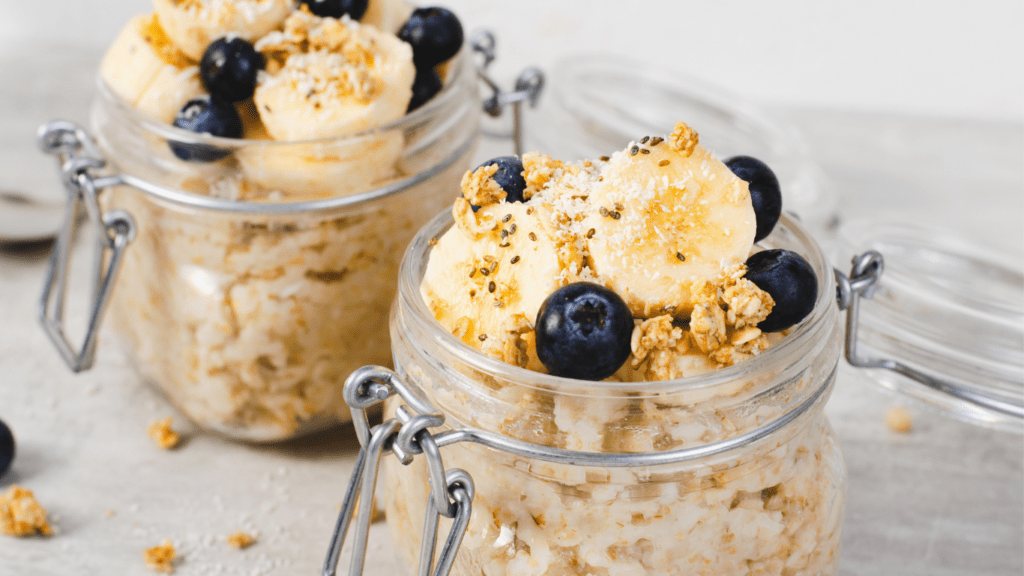Understanding Energy Needs
Athletes require specific nutrients to fuel their bodies for optimal performance. Carbohydrates provide quick energy by supplying glycogen to muscles during intense workouts.
Consuming complex carbs like oats and whole grains before exercise can help sustain energy levels. Proteins aid in muscle repair and growth.
Snacks like Greek yogurt or protein smoothies can offer essential amino acids. Fats, although slower to digest, provide long-lasting energy. Incorporating a small amount of healthy fats, such as nuts or avocados, can be beneficial when balanced with carbs and protein. Hydration is also vital. Properly hydrating with water or sports drinks ensures the body maintains electrolyte balance.
Key Nutrients for Performance
Optimal pre-workout snacks contain crucial nutrients that enhance athletic performance. Understanding how carbohydrates, proteins, and healthy fats contribute can help I make informed choices.
Carbohydrates
- Carbohydrates act as a primary energy source for athletes.
- During high-intensity exercises, carb intake helps maintain glycogen stores in muscles, providing rapid energy.
- Consuming simple carbs like fruits or complex carbs such as oatmeal 30 minutes before a workout ensures sustained energy.
- Aim for 25-35 grams for effective fueling.
Proteins
- Piroteins play a vital role in muscle health.
- Essential amino acids from proteins repair and build muscle tissue post-exercise.
- Incorporating proteins lke Greek yogurt or protein shakes in pre-workout snacks aids recovery and supports muscle mass retention.
- Typically, 10-20 grams before workouts offer optimal support.
Healthy Fats
- Healthy fats provide prolonged energy.
- Digesting fats is slower, so combining them with carbs and proteins ensures a balanced energy supply.
- Nuts or avocados can be good pre-workout options.
- Consuming about 10-15 grams of healthy fats promotes satiety without causing sluggishness, making workouts more efficient.
Top Pre-Workout Snacks

Pre-workout snacks play a crucial role in boosting performance and fueling the body. By choosing the right combination of nutrients, athletes can maximize the potential benefits of their workouts.
Fruits and Nut Butter
Combining fruits like apples or bananas with nut butter offers a perfect mix of carbohydrates and healthy fats. The fructose in fruits provides a quick energy source, while the fats in nut butter deliver sustained energy. Pairing a medium apple with two tablespoons of almond butter delivers approximately 30 grams of carbs and 16 grams of healthy fats, optimizing energy levels for exercise.
Greek Yogurt with Honey and Berries
Rich in protein and probiotics, Greek yogurt, when paired with honey and berries, forms an excellent pre-workout snack. Greek yogurt offers roughly 10-15 grams of protein per serving, aiding muscle recovery. Adding a tablespoon of honey introduces around 17 grams of carbs for quick energy, while berries provide additional antioxidants, helping reduce exercise-induced stress.
Oatmeal with Banana
Oatmeal is a fantastic source of complex carbohydrates, and when topped with banana slices, it delivers a balanced energy boost. A half-cup of oats contains about 27 grams of complex carbs, crucial for sustained energy release. Adding a medium banana increases the carb count by 27 grams and enhances potassium intake, supporting muscle function during exercise.
Whole-Grain Toast with Avocado
Whole-grain toast with avocado provides a nutritious, balanced pre-workout option. The toast offers around 20 grams of:
- complex carbohydrates
- essential for energy
- avocado supplies healthy fats
delivering about 10 grams. This combination promotes fullness without heaviness, making it ideal for those seeking a light yet energizing snack before exercise.
Timing Your Snack Intake
Proper timing of pre-workout snacks is crucial for optimal energy and performance. I find it’s best to consume snacks 30 to 60 minutes before exercise.
This timeframe allows the body to digest nutrients and provide energy without discomfort during workouts. By eating too close to the start, digestion might hinder performance, while eating too early could leave you feeling depleted.
In the 30 to 60-minute window, snacks should focus on easily digestible carbs with some protein and minimal fat. Carb-centric options like a banana with a small portion of Greek yogurt or apple slices with almond butter fit this nutrient profile.
For longer periods before exercise, like two to four hours, meals can include more complex carbs, moderate protein, and healthy fats. This larger meal might include oatmeal with fruit, whole-grain toast with avocado, or a balanced smoothie containing protein. Proper timing ensures stable energy levels that enhance training effectiveness.
Potential Risks and Considerations
Pre-workout snacks, though vital for performance, may present risks if not managed correctly. Ingredient selection is essential, as some snacks can cause adverse reactions. Processed ingredients, for example, might lead to digestive discomfort during workouts.
Individual dietary restrictions can affect snack choices. Allergies or intolerances, such as gluten or lactose intolerance, demand careful label reading. Finding suitable alternatives ensures one avoids negative health impacts.
Glycemic index (GI) matters when choosing carbs. High-GI foods can cause sugar spikes, followed by crashes, reducing workout effectiveness. Opt for lower-GI options to maintain steady energy levels.
Portion control is crucial to avoid unwanted weight gain or sluggishness. Overeating can lead to digestive inefficiencies, impacting physical performance.
Hydration and electrolyte balance also play a part. Excessive sodium intake, found in some pre-packaged snacks, can affect hydration status. Balancing sodium with adequate fluid intake supports optimal muscle function.
Lastly timing plays a pivotal role. Consuming snacks too close to workouts can cause discomfort. Allowing 30 to 60 minutes for digestion helps prevent this issue and maximizes energy availability.





